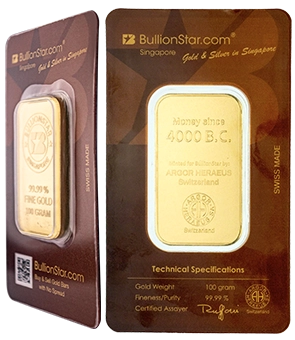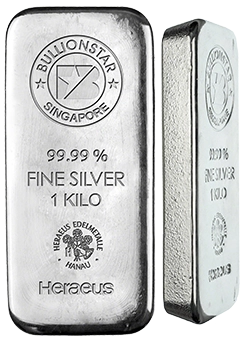The LBMA Fears Stoking the Russian Bear
Last week on 24 February when the UK Government introduced a raft of sanctions against Russian banks and Russian oligarchs, the cogs in the UK financial system began moving with British financial institutions rushing to distance themselves from the Russian financial sector.
Silence turns to Stalling
With gold as the ultimate reserve assets of the Bank of Russia, and with London a critical hub in the global gold market through the London Bullion Market Association (LBMA) and its famous London Good Delivery lists of accredited gold and silver refiners, it therefore begged the question as to what would the LBMA do about the large number of Russian gold refineries on the LBMA Good Delivery Lists, refiners which are embedded with the Russian banks in the Russian gold market.
Which was the reason for the tweet as follows on 24 February:
“While today the UK Gov imposed a huge list of sanctions against Russian banks, companies & elites, the LBMA still has 6 Russian gold refineries on its LBMA Good Delivery List. This is odd given that in 2018, the LBMA suspended 1 Russian gold refinery due to ‘ownership issues’.”
While today the UK Gov imposed a huge list of sanctions against Russian banks, companies & elites, the LBMA still has 6 Russian gold refineries on its LBMA Good Delivery List. This is odd given that in 2018, the LBMA suspended 1 Russian gold refinery due to ‘ownership issues’.
— BullionStar (@BullionStar) February 24, 2022
And which also, because the LBMA by 28 February still hadn’t made any comments about Russian refineries nor made any changes to its Good Delivery Lists, was the reason for publishing the BullionStar article titled “LBMA a deer in headlights as Western Sanctions show up Russian Gold Refiners”.
That article raised a number of issues, including:
• summarised the US – EU – UK sanctions which are targeting Russian banks (including VTB, Bank Otkritie, Sovcombank, Sberbank, Gazprombank)
• identified the 6 Russian refineries on the LBMA Good Delivery Lists for gold and silver (which are Krastsvetmet, Prioksky, Novosibir, Moscow Special Alloys Plant, Uralelectromed, and Shyolkovsky), 2 of which are also Russian refineries in the LPPM Good Delivery Lists for Platinum and Palladium (namely Krastsvetmet and Prioksky)
• explained that these 6 Russian refineries are either fully-owned by the Russian Federation or owned by Russian oligarchs
• highlighted that the LBMA had quietly and without notice, revoked the LBMA membership of two Russian banks – VTB and Otkritie (update – it was actually 3 Russian banks which were removed from the LBMA including the very recent member Sovcombank – see below).
• explained that due to the nature of the Russian gold industry where the Russian commercial banks (namely VTB, Sovcombank, Orkritie, Sberbank and Gazprombank), dominate the market and buy domestic Russian gold and then send the gold to be refined in the LBMA refineries before selling the gold (chiefly) to the central bank of Russia, that the LBMA Russian refineries, through their very structural positioning and client base, are, through no fault of their own, in breach of the LBMA Good Delivery Rules as regards sanctions.
Why? Because the LBMA’s very own Good Delivery (GDL) Rules state that:
“Under LBMA Good Delivery Rules, all GDL Refiners are required to comply with UN, EU, US, UK, or any other relevant, economic and/or trade sanction lists. Breach of any of the relevant Sanctions list would lead to removal from the GDL.”
The BullionStar article also highlighted that the LBMA had released a ‘sterilised’ notice on 24 February titled ‘Sanctions: Timely Reminder’ which was bereft of any actions and literally a damp squib. As the conclusion to the article stated:
“Why did the LBMA issue an empty statement on 24 February titled “Sanctions: Timely Reminder” which didn’t even mention the word Russia, didn’t mention that VTB and Otkritie are no longer LBMA members, and didn’t mention any of the 6 LBMA Russian Good Delivery refiners?
Because I looked up all of that information about these Russian refineries in less than an hour and matched it against the US – UK – EU sanctions, and if I can do that, so can the LBMA.”
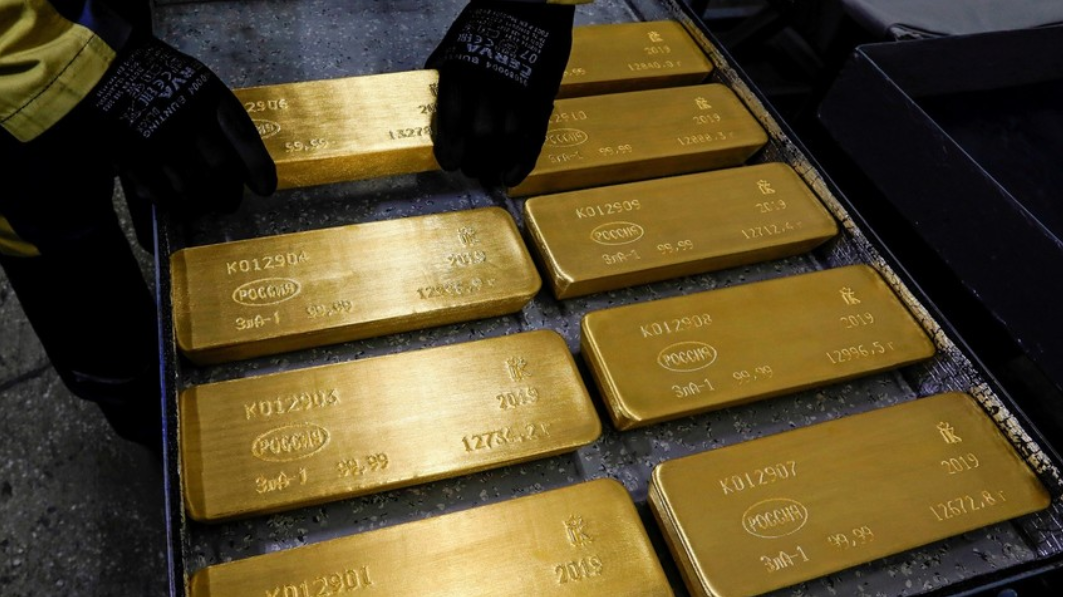
Something close to Nothing
As the days passed by from 01 March to 02 March to 03 March, the LBMA had still not addressed the issue of the Russian refiners on the Good Delivery Lists, despite the BullionStar article getting picked up on ZeroHedge’s front page and being read by 45,000 people, and despite (or maybe because of) the fact that there are a massive number of Russian refiner gold and silver bars being held in the world’s largest gold and silver ETFs such as GLD, IAU and SLV in the JP Morgan and HSBC vaults in London.
Then on the afternoon of 3 March London time, a full week after we had highlighted the LBMA – Russian Refineries – Sanctions conundrum, Reuters published a story titled “LBMA asks Russian gold refineries if they have links to sanctioned entities”
Let’s look at the Reuters article, which is by the LBMA’s favoured reporter Peter Hobson:
“The London Bullion Market Association (LBMA) told Reuters it has asked six Russian gold refiners it accredits if they have commercial links with sanctioned Russian entities and that such links, if found, could affect their accreditation.”
The association is working with the refiners, as well as with lawyers and officials, to understand what relationships they have and aims to make a decision on their accreditation in the coming days, the LBMA’s general counsel, Sakhila Mirza said.
“The good delivery rules are very clear,” she said. “We’ve asked for compliance with our rules.”
Hold on. Let that sink in. The LBMA has ‘asked’ the Russian refiners if they have commercial links with sanctioned Russian entities? Merely ‘asked’. Can this be for real?
The Dog Ate My Homework
Does the LBMA seriously not know that the entire customer base of these Russian refineries are the large Russian banks such as VTB, Sovcombank, Orkritie, and Sberbank? Does the LBMA not know that the Russian refiners are either owned by the Russian government or by Russian oligarchs, and that the main buying client of Russian refinery bars is Russia’s central bank. Even the dogs on the street know this. So why would the LBMA have to ‘ask’ its own accredited refiners anything about their operations?
And bizarrely why does the LBMA need to work with “the refiners as well as the lawyers and officials to understand what relationships they have”?
Even Reuters in its article points this out:
“In Russia, commercial banks buy gold from miners and send it to refineries before exporting it. The Russian central bank is also at times a big buyer and this week said it would resume purchases of gold in the local market.”
“Refineries typically have relationships with banks that finance their activities. EU leaders have said their sanctions target 70% of the Russian banking market.”
This also is the same LBMA which claims that it is the ‘“global authority for precious metals” and states that:
“Accreditation to LBMA’s Good Delivery List is globally recognised as the benchmark for the quality of gold and silver bars, due to the exacting criteria that an applicant must satisfy.
Refiners seeking acceptance to the list of accredited refiners must undergo stringent checks regarding their history in the market, their financial standing and their ability to produce bars that meet the exacting standards of London Good Delivery (LGD) Rules.
Additionally, they must implement LBMA’s Responsible Gold and/or Silver Guidance prior to accreditation.”
Overwhelming Evidence
This is the same LBMA which in its responsible sourcing programme for precious metals, requires each LBMA refinery to go through annual third-party audits from approved auditors. For Russia, this auditor is PwC Russia, which has a registered office at 10 Butyrsky Val Str. 125047 Moscow (http://www.pwc.ru), and whose contact point for the LBMA is Alexei Fomin, E: alexei.fomin@ru.pwc.com, T: +7 495 967 6000. Source.
If the LBMA ‘global authority’ is really struggling about understanding the operations of the Russian refinery sector as it claims to be, could not PwC Russia brief the LBMA on how the Russian gold market supply chain works and how the Russian refiners fit into the Russian gold market?
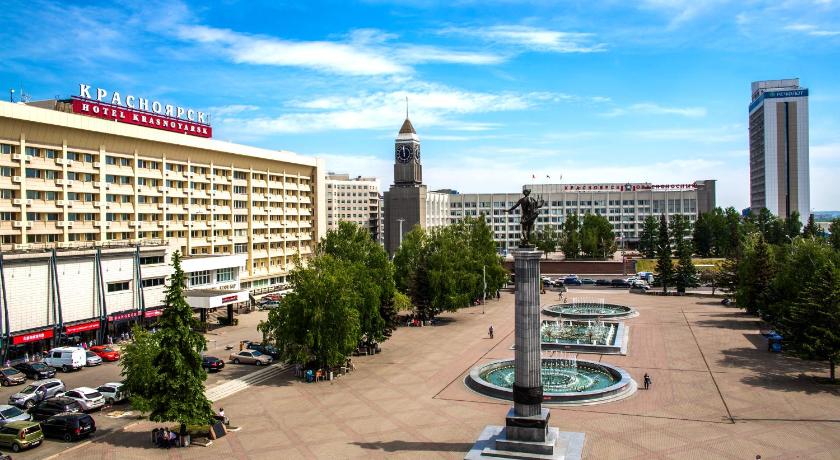
After all, all of these responsible sourcing audits by PwC Russia for the LBMA accredited Russian refiners check everything from internal controls to account opening procedures to due diligence on potential precious metal supplying counterparty to testing a sample refiner transactions to checking counterparties in the Russian gold supply chains.
You can see this from the most recent audit reports for the LBMA Russian refiners, which except for one, were all conducted by PwC Russia, can be seen for:
• Krastsvetmet here 16 April 2021 by A.B Fomin (Alexei Fomin), PwC certified auditor
• Prioksky here 12 March 2021 by A.B Fomin. PwC certified auditor
• Novosibirsk here 29 March 2021 by Yuri Muravlev, PwC certified auditor
• Uralelektromed here 31 March 2021 by A.N. Rusanov PwC certified auditor
• Moscow Special Alloys Processing Plant here 27 May 2021 by A.B Fomin. PwC certified auditor
• Shyolkovsky here 15 July 2020 (not by pwC) but by the Russian consultancy RBS
In addition, in late 2020 the LBMA, as the self-proclaimed global authority on precious metals, contacted 12 International Bullion Centres (IBCs), including Russia, and dictated to each of these 12 IBCs that they should have:
– Effective scrutiny and verification of local and regional supply chains;
– Effective regulation of local and regional supply chains;
The 12 IBCs = China, Hong Kong SAR, India, Japan, Russia, Singapore, South Africa, Switzerland, Turkey, UAE, UK, USA.
Before it could contact these 12 IBCs, the LBMA would intimately acquainted with the regional and local precious metals supply chain of each, including Russia.
We don’t know any Russian Banks
Furthermore, how can the LBMA claim to not know about the operations and client base of the Russian refineries when up until last week (week of 21 -25 February), there were still 3 Russian banks as members of the LBMA. These banks were VTB, Bank Orkritie, and Sovcombank, and all 3 of these banks are heavily involved in the Russian gold market.
VTB Bank had been a member of the LBMA since March 2015, and Bank Otkritie Financial Corporation (Bank FC Otkritie), which was formerly known as Nomos Bank, had joined the LBMA in November 2011. How can the LBMA claim to not know about the client base of the Russian refiners given that these banks were LBMA members?
Believe it or not, the third Russian bank member of the LBMA, Sovcombank, actually only joined the LBMA on 9 February 2022, just two weeks before it then got kicked out of the LBMA. The entry of Sovcombank to the LBMA would have also been an occasion for ‘Team’ LBMA to brush up on its Russian gold market knowledge. For the Sovcombank press release on 9 February 2022 stated that:
“Sovcombank joined the London Association of Precious Metals Market Participants (LBMA), becoming the third Russian bank member of the association. The new status will strengthen the Bank’s position in the promising precious metals trading markets..
Sovcombank entered the precious metals market in 2018 and is currently the largest buyer of gold in Russia.
In 2021, the Bank purchased 80 tons of gold bullion, which is about 20% of the total trade volume in Russia.
Sovcombank provides services for the purchase, sale and export of precious metals, financing of the gold mining season, leasing and factoring, hedging of price risks, opening of metal bank accounts. Participates in the financing of gold mining projects. The Bank exports precious metals to India, the USA, the UK and European countries.”
In the press release, Mikhail Autukhov, Deputy Chairman of the Management Board and Head of the corporate investment business of Sovcombank said that:
“LBMA is an authoritative and globally recognized organization of precious metals market participants, which not only regulates trade, but also provides practical assistance to members of the association.
I am sure that membership in LBMA will allow us to strengthen our positions in the precious metals market …in the current and subsequent years."
Unfortunately for Mikhail, that wasn’t to be, as the LBMA unceremoniously revoked the LBMA membership of Sovcombank just two weeks later, which by the way has to be a record for the shortest LBMA membership in history.
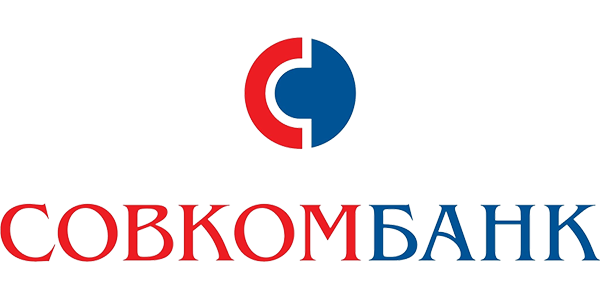
But to grant Sovcombank membership of the LBMA, the LBMA would have known that Sovcombank is “the largest buyer of gold in Russia” and that Sovcombank, as well as VTB, Otkritie, Sberbank and Gazprombank etc, all use the LBMA Russian refineries to refine the precious metals that they buy from the Russian miners and then sell downstream (including to the Bank of Russia), and that they finance said refiners.
If 3 Russian bank members of the LBMA is not enough, then its useful to know that beyond VTB, Otkritie and Sovcombank, other big name banks involved in the Russian gold trade have also held membership in the LBMA, namely MDM which was an associate of the LBMA since 2010, and Sberbank, which was an associate of the LBMA since June 2014.
Don’t Mention the Moscow Forum
As long ago as June 2004, the LBMA also held one of its “Bullion Market Forums” in Moscow. See the content of that LBMA Moscow Bullion Market Forum here. And the opening address to the Moscow conference by the then LBMA Chairman, Simon Weeks, here.

So enough of the LBMA disinformation.
Given all of the above, the LBMA well knows whether “the six Russian gold refiners it accredits… have commercial links with sanctioned Russian entities” or not? And the LBMA well can “understand what relationships” the six LBMA Russian refiners have.
The LBMA’s explanation to Reuters is thus theatre and a stalling exercise, and a complete reluctance to address the sanctions head on. It actually is like some amateur dramatics old school theatre.
LBMA to Russian refiners: “I say chaps, if you don’t mind awfully, do you chaps have a relationship with the sanctioned Russian banks?”
Russian refiners: “Nyet!”
LBMA: “Jolly good show then, carry on. Sorry to bother you. I know its frightfully imposing. But I’m sure we’ll see each other in Lisbon at the conference. Pip pip.”
From SLV to IAU to GLD
But then why the LBMA stalling? Could it be because there are so many Russian 400 oz bars in the London gold and silver vaults that the LBMA banks such as JP Morgan and HSBC want the issue to be swept under the carpet?
Peter Hobson’s Reuters article gives another clue:
“The loss of LBMA accreditation would make it difficult for the refiners to sell gold and silver in the London market, the world’s largest, as major international banks typically only deal with LBMA-approved refiners.”
While Reuters says that traders think that “Russian metal would still find buyers in places such as China and the Middle East”, that’s not true in the London market, and doesn’t solve the problem of 1000s of Russian bars currently sitting in the London vaults.
Did you know that there are 1890 gold bars from the Russian refiners currently being held by the world’s largest gold-backed ETF, the SPDR Gold Trust (GLD)?
Yes, specifically, at the time of writing (4 March 2021), GLD holds 1308 Krastsvetmet gold bars, 406 Prioksky gold bars, 55 Novosibir gold bars, 105 Uralelectromed gold bars, and 16 Shyolkovsky gold bars. With GLD currently claiming to hold 83,293 gold bars, that’s 2,2% of GLD holdings in the form of Russian refiner gold bars. The SPDR Gold Trust (GLD) vault custodian is HSBC in London.
Or did you know that there are 4354 Russian gold bars currently being held by the iShares Gold Trust (IAU)? The Russian gold bar holdings in IAU are even more concentrated than in GLD.
At the time of writing (4 March 2021), the iShares Gold Trust holds 3595 Krasnoyarsk gold bars, 598 Prioksky gold bars, 160 Novosibirsk gold bars, and 1 Uralelectromed gold bars, which comes to a grand total of 4354 Russian gold bars from these four LBMA accredited Russian refiners, all of which are held in the JP Morgan vault in London (as JP Morgan is custodian for IAU).
With iShares Gold Trust holding a total of 40,333 gold bars, this means that the Russian gold bars comprise 10.8% of IAU’s total gold bar holdings. Between them, IAU and GLD hold 6244 gold bars from LBMA Russian refineries.
If you think that’s a lot of Russian bars, wait until you see what’s in SLV, the iShares Silver Trust. At the time of writing (4 March 2022), the massive SLV holds a whopping 39451 Silver bars from LBMA Russian refiners, which is 7.07% of SLV’s total silver bar holdings (SLV holds 557,730 silver bars in total). These are the big 1000 oz wholesale Good Delivery Silver bars. The SLV holdings of Russian refiners, per refinery, are:
SLV holds 24024 Krastsvetmet sivler bars, 7044 Prioksky silver bars, 3996 Uralelectromed silver bars, 2198 Shyolkovsky silver bars, 630 Novosibir silver bars, and SLV even holds 1559 Ekaterinburg silver bars.
Ekaterinburg has been suspended from the LBMA Good Delivery List for Silver since 15 May 2018 due to sanctions against its controlling company Renova Group and its controlling Russian oligarch and largest shareholder, Viktor Vekselberg.
Conclusion
It doesn’t matter that, as Reuters says, “Russian metal would still find buyers in places such as China and the Middle East”, if Russian refiners were removed from the Good Delivery Lists, the point is that no trader in the London market would want to hold or receive Russian bars which were not on the current Good Delivery Lists.
It also too does not matter that the LBMA claims that “when the LBMA removes a refiner’s accreditation, the metal that refiner produced when it was accredited remains acceptable in the London market”, the point is that no London trader wants those tainted bars.
As Reuters wrote in May 2018 after Ekaterinburg was suspended:
“Suspension from the list makes it harder for buyers and sellers to trade bars in the mainstream precious metals market, traders said.
‘"Our company would not touch any bars that are not LBMA-accredited,’ one trader at a major precious metals house said. ‘Most probably they are going to be in a secondary market.’
Fast forward back to now, and Reuters, to its credit, did contact the 6 LBMA accredited Russian refiners in question. But alas, “Shyolkovsky declined to comment. The others did not respond to requests for comment.”
For the LBMA’s sake, we hope that the LBMA has better luck in getting an answer from the 6 Russian refiners than Reuters had.
Beyond the fact that GLD, IAU, SLV and other precious metals backed ETFs hold a large amount of Russian bars, the reluctance of the LBMA to sanction any Russian refinery could conceivably be based on a fear of triggering a reaction from the Bank of Russia and Kremlin.
For if you ban Russian gold bars in the London market, this would surely accelerate the use of Russian gold as the ultimate currency for non-Western trade, and the deployment and use of this same Russian gold everywhere else in the global market, from Shanghai to Mumbai, from Dubai to Minsk, from Islamabad to Riyadh, from Astana to Sao Paulo and from Pyongyang to Johannesburg. Maybe that is the LBMA – HM Treasury – US Treasury’s worse case nightmare, and the real reason why the LBMA is stalling.
Popular Blog Posts by Ronan Manly
 How Many Silver Bars Are in the LBMA's London Vaults?
How Many Silver Bars Are in the LBMA's London Vaults?
 ECB Gold Stored in 5 Locations, Won't Disclose Gold Bar List
ECB Gold Stored in 5 Locations, Won't Disclose Gold Bar List
 German Government Escalates War On Gold
German Government Escalates War On Gold
 Polish Central Bank Airlifts 8,000 Gold Bars From London
Polish Central Bank Airlifts 8,000 Gold Bars From London
 Quantum Leap as ABN AMRO Questions Gold Price Discovery
Quantum Leap as ABN AMRO Questions Gold Price Discovery
 How Militaries Use Gold Coins as Emergency Money
How Militaries Use Gold Coins as Emergency Money
 JP Morgan's Nowak Charged With Rigging Precious Metals
JP Morgan's Nowak Charged With Rigging Precious Metals
 Hungary Announces 10-Fold Jump in Gold Reserves
Hungary Announces 10-Fold Jump in Gold Reserves
 Planned in Advance by Central Banks: a 2020 System Reset
Planned in Advance by Central Banks: a 2020 System Reset
 China’s Golden Gateway: How the SGE’s Hong Kong Vault will shake up global gold markets
China’s Golden Gateway: How the SGE’s Hong Kong Vault will shake up global gold markets






 Ronan Manly
Ronan Manly 0 Comments
0 Comments







